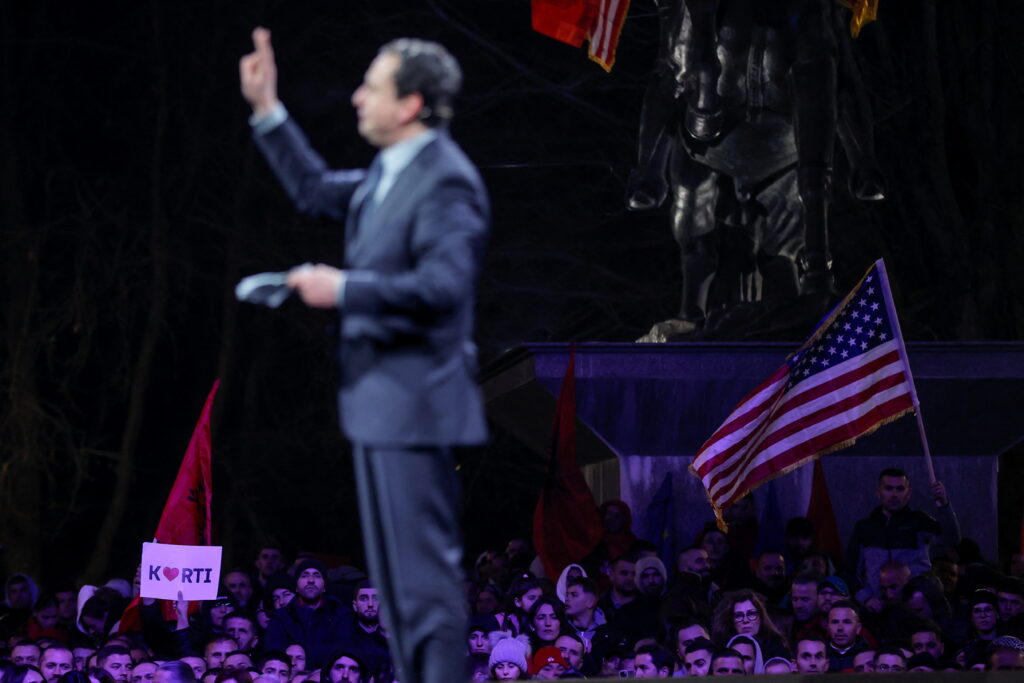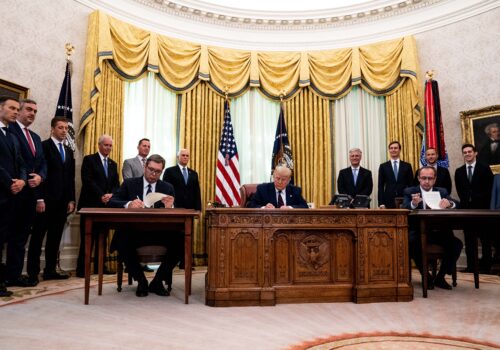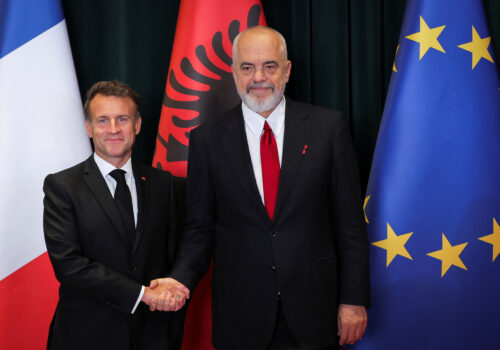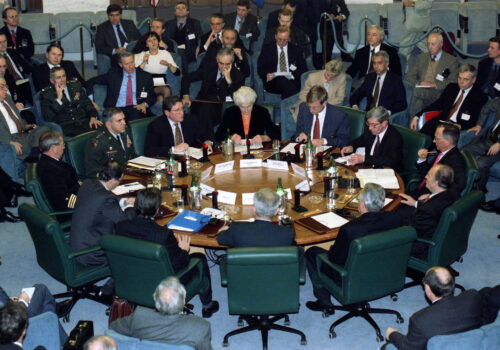On September 12, the Trump administration suspended its strategic dialogue with Kosovo, citing unspecified actions and statements from caretaker Prime Minister Albin Kurti. The suspension comes seven months into a political crisis in Kosovo, with the country being unable to inaugurate a new parliament since February’s elections.
What will this suspension mean for US-Kosovo relations? And what does the timing of recent US-Serbia talks say about the Trump administration’s approach to the Balkans? For answers, we initiated a dialogue with our experts below.
1. What is a strategic dialogue and why does it matter?
A strategic dialogue is a diplomatic tool used by the United States to advance bilateral relations with various countries. It involves high-level discussions on an agreed, broad agenda. The United States has engaged in strategic dialogues with several countries in southeast Europe, including Bulgaria, Romania, Greece, Croatia, and North Macedonia. It has used these dialogues to strengthen partnerships on issues such as defense, energy security, trade, investment, cybersecurity, and people-to-people ties. The overall goal of these dialogues is to promote stability, prosperity, and enhanced participation or integration into Euro-Atlantic institutions for the countries involved. They also serve US strategic interests by helping to counter the influence of other global powers and secure a more stable and secure Europe.
—Jeffrey Hovenier is a nonresident senior fellow at the Atlantic Council’s Europe Center and a former US ambassador to Kosovo.
2. Why did the United States suspend the strategic dialogue?
The US announcement did not point to a specific cause prompting the suspension. Rather, it cited “concerns about caretaker government actions that have increased tensions and instability.” Although the suspension closely follows Kurti’s comments on September 7 criticizing Kosovo’s Constitutional Court, it could be that this was simply the final straw in a series of frustrations with Kurti’s government.
Over the past two years, Kurti has faced sharp rebukes from the European Union, United States, and NATO allies for unilaterally installing ethnic Albanian mayors in Serb-majority municipalities after boycotted local elections, for defying Western calls to de-escalate, and for deploying armed police units in the north despite warnings that these moves could provoke instability. The US decision to suspend talks could, therefore, be a calculated move to pressure Kurti to be a more constructive partner with Washington and transatlantic allies.
—Lisa Homel is an associate director at the Atlantic Council’s Europe Center.
3. What are the implications for Kosovo?
The US decision to suspend the strategic dialogue with Kosovo carries immediate and troubling implications for Kosovo and its minority communities, particularly ethnic Serbs in the north. Strategic dialogues are not merely symbolic exercises; they provide a structured framework for advancing stability, fostering institutional accountability, and promoting inclusive governance in a multiethnic country.
With Washington stepping back, Kosovo’s minorities risk being left more exposed to unilateral policies from local authorities and illegal activities that could deepen marginalization, heighten local tensions, and constrain their already limited avenues for meaningful political participation.
The timing of the suspension is unfortunate and will have negative implications for Kosovo. The suspension comes at a juncture of heightened political volatility, with Kurti’s government under sustained international criticism for actions to shut down or impede support provided by Serbia to the ethnic Serb community in Kosovo. The United States and Europe have characterized these actions as unilateral, uncoordinated with US and international partners, and unnecessarily adding to tensions. At a time when international cooperation and reassurance could significantly advance Kosovo’s trajectory and standing, the government of Kosovo instead now confronts the consequences of a loss of confidence from its most significant partner.
—Ilva Tare is a senior fellow at the Atlantic Council’s Europe Center and the host of the Center’s Balkans Debrief video series.
4. How does Serbia play in to this?
US administrations have always rejected the zero-sum dynamic that Pristina and Belgrade prefer, making clear that policy toward one is distinct from the other. That being said, this decision comes just five weeks after US Secretary of State Marco Rubio and Serbian Foreign Minister Marko Đurić met in Washington and agreed to hold a bilateral strategic dialogue between Serbia and the United States this year.
While the forthcoming US-Serbia strategic dialogue should be considered separately from the developments with Kosovo, it does merit some consideration whether the United States should be deepening its ties with Serbia, even symbolically, at least for the time being.
The past few months have seen widespread anti-government protests throughout Serbia, which have been met with increasingly brutal police responses with the approval of Serbian President Aleksandar Vučić. The violence has become so significant that European Commissioner for Enlargement Marta Kos publicly questioned the “sincerity of Serbia’s commitment to the EU path” and said that the European Union has a “problem in Belgrade.” Moreover, there are concerns that the Serbian government may opt to divert attention from its domestic crisis by manufacturing a flare-up in ethnic tensions with the Serb-majority areas in the north of Kosovo.
Strategic dialogues are as much about signaling as tangible results, so it is incumbent upon Washington to evaluate if this is the right time to send the signal that it wishes to promote the relationship with Belgrade.
—Lisa Homel
Further reading
Mon, Aug 25, 2025
Trump should kickstart Kosovo-Serbia talks into making real progress
New Atlanticist By Agon Maliqi
The Trump administration has an opening to reinvigorate dialogue between Kosovo and Serbia, but it must avoid the mistakes of past mediation processes.
Tue, Jun 17, 2025
Are Albania and Montenegro on the fast track to EU membership?
New Atlanticist By Agon Maliqi
Albania and Montenegro are capitalizing on the European Union’s renewed momentum for enlargement as a result of Russia’s war on Ukraine.
Wed, May 28, 2025
Dispatch from Dayton: What Trump can learn about ending war
Inflection Points By Frederick Kempe
A recent visit of the NATO Parliamentary Assembly to Ohio—thirty years after the Dayton Accords ended the Bosnian War—raised important questions about what lessons can be applied to ending Russia’s war on Ukraine.
Image: Albin Kurti, Kosovo's prime minister and leader of the Self-Determination party speaks during the closing electoral rally for the upcoming parliamentary elections, in Pristina, Kosovo February 7, 2025. REUTERS/Valdrin Xhemaj



